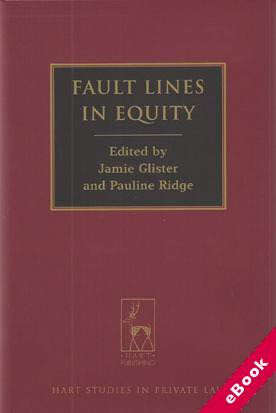
The device(s) you use to access the eBook content must be authorized with an Adobe ID before you download the product otherwise it will fail to register correctly.
For further information see https://www.wildy.com/ebook-formats
Once the order is confirmed an automated e-mail will be sent to you to allow you to download the eBook.
All eBooks are supplied firm sale and cannot be returned. If you believe there is a fault with your eBook then contact us on ebooks@wildy.com and we will help in resolving the issue. This does not affect your statutory rights.
Equity, the body of law developed in the English Court of Chancery, has a long and distinguished history. In the twenty-first century it continues to be an important regulator of both commercial and personal dealings, as well as informing statutory regulation. Although much equitable doctrine is settled, there remain some intractable problems that bedevil lawyers across jurisdictions.
The essays in this collection employ new historical, comparative and theoretical perspectives to cast light on these fault lines in equitable doctrine and methodology. Leading scholars and practitioners from England, Australia and New Zealand examine such contentious topics as:-